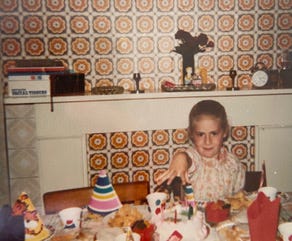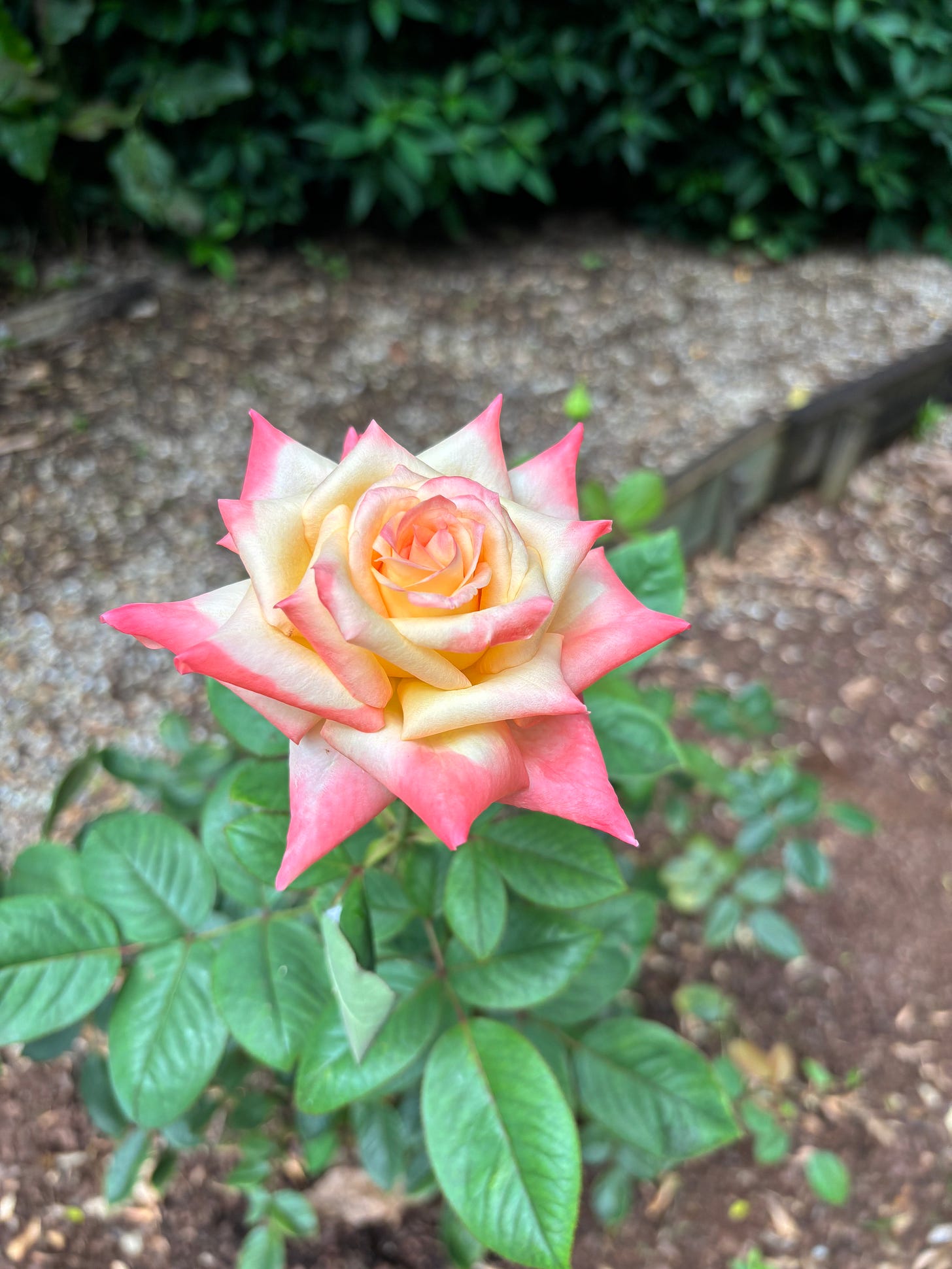According to the medical profession, there is no such thing as a born worrier. The tendency to fret is something we human beings are said to develop, due to a number of factors, over a period of time. I respectfully disagree. Cut me in half like a stick of Blackpool rock and you’ll see the letters W O R R Y emblazoned in neon pink. As far as I’m concerned, it’s a trait I was born with, a genetic certainty akin to eye colour and blood type.
Worries come in various shapes and forms. While many people my age attribute their lifelong fears of quicksand, electric pylons, and strangers to public information films, my own sleepless nights were more often caused by concerns about my parents’ mortality. That and the Brixton riots.
I’d like to clarify at this point that we didn’t live anywhere near the area, but watershed television was an abstract idea back then, and TV schedules were filled with current affair documentaries such as World in Action. The theme tune alone was enough to strike fear into the hearts of many, and I couldn’t help but absorb the goings on in the world, while impatiently waiting for something far more entertaining to come on the telly, perhaps Starsky & Hutch or Tales of the Unexpected. The former wasn’t a cause for concern, but the latter was often disturbing, and one episode in particular stopped me from eating honey for fear of becoming a bee.
Even programmes made specifically for kids my age were questionable in content. Play School was tame enough, however, I couldn’t help but notice that Hamble the doll didn’t get as much airtime as Jemima. Were the soft toys leaving her out? And after a particularly traumatic episode of Little House on the Prairie, where Mary Ingalls went blind overnight, I flatly refused to sleep without the light on for weeks.
But didn’t everybody worry in the 1970’s? Widely reported as a time of social and economic unrest, it’s been described as Britain’s gloomiest period since the second world war, sandwiched between Harold Wilson’s ‘swinging sixties’ and Margaret Thatcher’s divisive eighties. A time that saw rubbish piled high on the streets for weeks, frequent power cuts and the constant threat of an IRA bomb going off at any given time.
It stands to reason that my generation (X) are often lauded for growing into resilient adults. Born pre-internet, our learning experiences were multi-generational as opposed to multi-platform, therefore we were always exposed to whatever issues were concerning our parents, simply by being in the same room.
Yet although pre-puberty delivered its own set of fears, I wasn’t particularly keen to navigate the choppy waters of adolescence. I had replaced my harmless comics for teenage tomes such as Just 17 and More magazine which, week by week, gave conflicting advice on how to kiss…But even this problem paled into significance when a new disease rode into town. AIDS, as many will remember, was accompanied by a terrifying ad campaign and leaflets delivered to every household, warning us not to die of ignorance, which is ironically, one thing a born worrier never has to worry about.
Emerging into adulthood should’ve brought some relief, but I continued to sweat the small stuff, as well as the big stuff, so therefore fretted about job security, mortgage rates, health issues, relationships and the ticking of that pesky biological clock. But then along came the life changing event that I had feared for so long. When my dad died and Mum had to undergo treatment for cancer that very same year, a strange thing happened. My brain, which was under severe stress, decided to reboot - forcing me to prioritise my worries.
As previously mentioned, my parent’s mortality had been a constant concern, and although Mum lived to fight another day, the realisation of my fears saw me adjust my mindset to the point that when I underwent surgery myself to remove a benign brain tumour in 2016, I can honestly say that I gave it very little thought. I had learnt by then to “accept the things I couldn’t change, have courage to change the things I can and the wisdom to know the difference.” Although if I’m honest, it’s a work in progress…I’m not reformed; anxiety is still my toxic friend.
For instance, at this present moment in time I worry about the roses. I’ve been told this day will come, when your fingers turn green and you start watching Gardener’s World. Well I haven’t gone that far, but my husband and I planted three rose bushes in the front garden after listening intently to the wise looking sage at the nursery who advised on the best way to care for them.
One rose in particular has become my favourite, and I’m relieved to see it flourish on a regular basis. Its big powdery head is a yellowy pink, and the smell of it gladdens my heart. Photos of this rose are close to outnumbering pictures of our dog on my phone, and I’m embarrassed to admit showing it off to anyone who has the misfortune of being around when it’s in full bloom. Amazon delivery drivers are particularly compliant, I’ve found.
So as I tend to my roses, I've learned to embrace life's uncertainties with a newfound perspective. While worry may always be my companion, I've come to appreciate the beauty in nurturing something as delicate as a rose, and in doing so finding solace amidst life's thorns.







Connect with this Sharon. Why do we suffer in isolation. So powerful to share in a relatable way that creates a sense of connection and helps to reduce that worry!
Like you, worry and ‘feeling bad’ seems part of the genetic makeup! Still working on it! 🤗
What a lovely piece Sharon, well done, a real treat, thank you. I'm also a worrier, it just shows we care more than those feckless easy-going people. Anyway, love the look of your rose and, in the words of the immortal Elvis Costello, let's hope it's a good year for the roses.